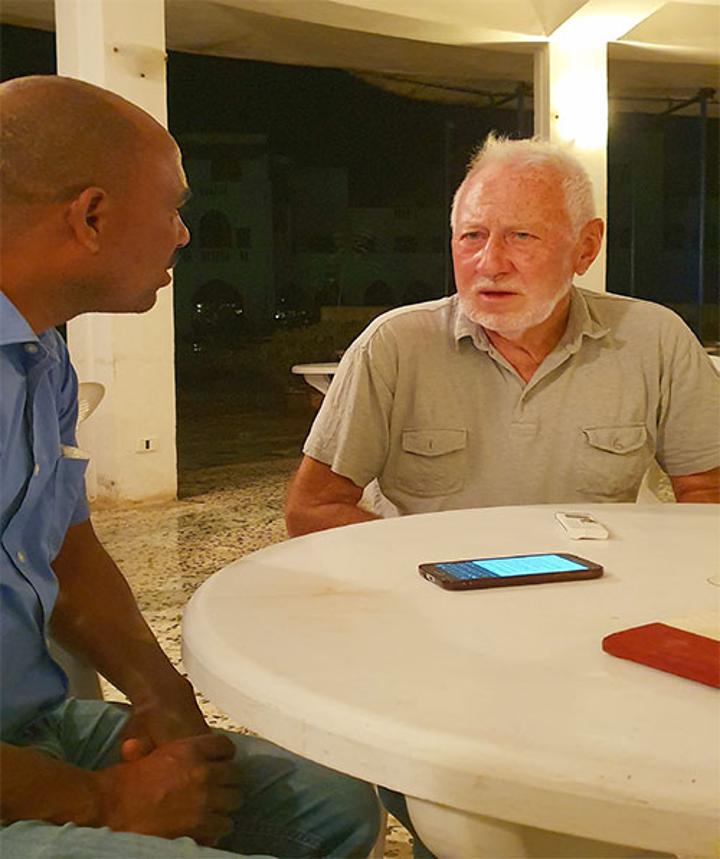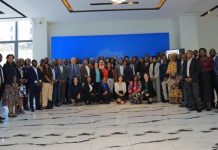Africa-Press – Eritrea. I am Prof. Hans Furrer. I am a professional teacher in vocational studies. I came to know Eritrea 33 years ago. I am currently engaged in a joint project with the National Confederation of Eritrean Workers (NCEW).
My first introduction was when I visited Orotta, in the liberated areas, with Doctor Toni Locher 33 years ago. I still don’t forget what I observed then. The freedom fighters I met there were very courageous and innovative. I saw them accomplish something from scratch. They could manufacture something by putting different pieces together.
We started contact with the NCEW three to four years ago. We shared with them what we could contribute. That is how we started to share our experience in teaching methods to the teachers of the Massawa Workers Vocational Training Centre (MWVTC). We gave training of trainer’s courses in electricity, electronics and computer applications.
The focus of the training is on how to teach. The teaching method which we observed was teacher-centered. We recognized that the teaching method should encourage learners’ or trainees’ participation. Some of the trainees have more work experiences than the trainers. When I visited the liberated areas, I had seen a slogan of the Eritrean People’s Liberation Front. It said, “Every teacher is a student, and every student is a teacher.” This was the first pedagogical notion of the People’s Front. And it is correct. The second slogan which we use is, “Give a person a fish and he will eat one day. Teach a person how to fish and he will eat his entire life.” Instead of doing everything for the trainees you have to enable them to learn themselves. As we observed in the course of our several visits in the last two years, I have the belief that the trainers have grasped this concept. They talk less as the training being given is based more on practice.
They are young with great enthusiasm. They are eager to transmit their knowledge wholly. But in reality it shouldn’t be like that. The students should be left to learn some of it through experience. For instance, I saw them learning about Ohms in the electricity class. But that is not how it should be. It is the practical matter which the trainees should know first. Then the theory comes when the question of how it works arises. Theory is found in pragmatism.
It is good to know that also in Switzerland there are weak teachers. For example, if we see our experiences during the past 20 years, there were attempts to give vocational training based only on theory. I have noticed great changes in the MWVTC during the past two years. It is vocational education, and not vocational training, that is being provided. Vocational training stops at the acquisition of skills only. But when we say vocational education, it means developing knowledge, skills and attitudes. It means obtaining the education as a whole. I am very proud to see such a change in this training center. Not only that, I am impressed by the attitude of the teachers. I have also found the NCEW to be an institution where this right attitude can thrive. I am witnessing it entrusting the youth with full responsibility. It is enabling them to grow responsibly. This is an example for other institutions. Honestly speaking, initially there were some problems. But now, there are no problems visible to me.
So far we have been concentrating on training of trainers. This year, for example, the six of us in different fields have come as a team. One trainer has been assigned for each field of training. We train the teachers from 09:00 to 12:00 every morning. Issues such as the objectives of training and what needs to be done during teaching are discussed. They prepare lesson plans accordingly. We also visit and inspect the conditions of the workshops in the morning. The next morning, assessments are made and opinions exchanged.
I would like to point out that the training of workers is different from the teaching of vocational school students. The technical and vocational schools put more emphasis on theory. But our trainees are not academicians. They are persons who spend the day doing practical vocational jobs. For example, if we take the field of electricity the prepared curriculum starts with what an ‘atom’ is. What use is it to the young professional workers to know about an atom? Learning about voltage, resistance and current is relevant to them because it is related to the practical things they do. Knowledge about an atom is something they can learn later. Another thing is that the curriculum which has been prepared emphasizes competence. At the end there is an objective which says the trainee should do this and that. However, they are starting with the atom. There is also a similar problem in the wood workshop. The lessons start with the familiarization of tools. But there is no need to familiarize the trainees with the tools which they are already familiar and working with. One has to prepare them for the end product which they have to produce, stage by stage. Their capacity is measured by that.
The Swiss Support Committee for Eritrea is a voluntary organization founded 42 years ago by Eritreans who lived in Switzerland. It was an organization established for the purpose of assisting the Eritrean people during the armed struggle. It has been cooperating in the areas of health and other aspects. One of the founders of SUKE, Dr. Toni Locher, for example, has repeatedly visited Eritrea and rendered support before and after Eritrea’s independence. Not only he but about 100 other members of the organization have also contributed greatly. Today almost all of us have become old, but we also have few young members. Currently, we are involved in Tokombia in a project of providing donkeys and micro credit to vulnerable households. We were also active in the construction of dams in the Southern region.







